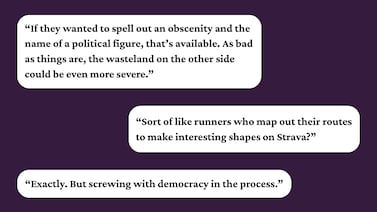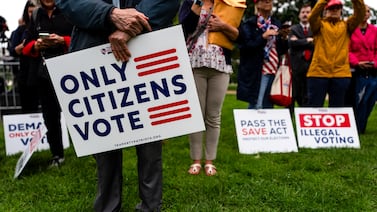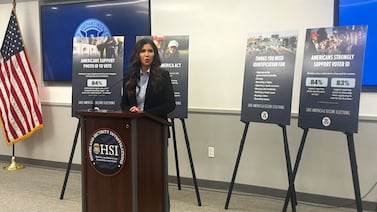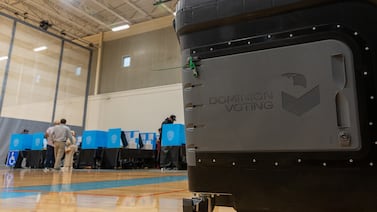Votebeat is a nonprofit news organization reporting on voting access and election administration across the U.S. Sign up for Votebeat Arizona’s free newsletter here.
A Republican state lawmaker who is also running for secretary of state has introduced a proposed ballot measure that would overhaul early voting in Arizona by eliminating the early-voter list, shortening the time to cast early ballots, and requiring proof of citizenship to receive an early ballot.
State Rep. Alex Kolodin, who as a lawmaker and a former lawyer for the Arizona Republican Party has pushed to abolish the state’s early-voter list, said in a press release that he’s pushing legislation to put the measure on the ballot because “Arizonans are tired of excuses and chaos on Election Day.”
Kolodin said in a statement that his proposal would improve identification standards and ensure timely election results. He did not respond immediately to requests for comment.
Some provisions of his proposed measure are already in state law, including a poll closing time of 7 p.m. on Election Day and a voter ID requirement.
But others would eliminate a fixture of Arizona elections, the Active Early Voter List, which allows voters to sign up to receive a mail ballot automatically for each election they’re eligible for. Under Kolodin’s proposal, only voters who have provided proof of citizenship would get an early ballot, and they would have to ask for one every two years.
The early-voting list was already due for changes under a law passed in 2021. Starting in 2027, a voter will be removed from the list if they don’t cast their mail ballot for two consecutive general election cycles — a four-year period. That includes statewide general and primary elections, as well as local candidate elections.
Requiring requests every two years, as Kolodin proposes, “is a highly unpopular idea,” said Alex Gulotta, the Arizona director for nonprofit voting advocacy group All Voting is Local. “It’s counter to the way the people of Arizona have executed their right to vote, and if they put it on the ballot, voters are going to vote against it.”
Former Secretary of State Ken Bennett, a Republican, also questioned whether, under the proposal, voters would have to ask for a mail-in ballot just once every two years, or whether they would have to make separate requests for the primary and the general election.
“That would be a nightmare,” Bennett said. “I don’t know if they thought through that wording, but they better be careful.”
The proof-of-citizenship requirement could also raise a legal question.
Arizona voters in 2004 passed Proposition 200, which requires documentary proof of citizenship to vote.
In 2013, the U.S. Supreme Court ruled that Arizona could not require proof of citizenship for voters who register with a federal voter registration form that the state is required to accept, because the federal form did not require such proof. But the justices allowed the state to keep the requirement in place for voters who register with a state form, to vote in state and local elections. Voters who register using the federal form must be permitted to vote in elections for president and for Congress.
Bennett was in office when the U.S. Supreme Court ruled in 2013, and he made the decision to split Arizona’s voter rolls, creating a list of federal-only voters.
Earlier this year, the 9th U.S. Circuit Court of Appeals voided many provisions of a 2022 Arizona law that added a proof-of-citizenship requirement for federal form applicants to vote by mail, as well as requiring proof of citizenship to vote in presidential elections.
Bennett said he sees other problems with Kolodin’s legislation.
For example, the legislation also proposes ending early voting no later than 7 p.m. on the Friday before Election Day. Bennett said that language should be adjusted to make sure not to invalidate any mail ballots that are returned to elections officials over the weekend or on Monday and Tuesday.
The legislation is a concurrent resolution, meaning it doesn’t require the governor’s approval and goes directly to voters on the November 2026 ballot if the Legislature approves it.
State Sen. Shawnna Bolick, a Phoenix Republican, introduced a mirror resolution in her chamber. Introducing duplicate legislation in each chamber allows it to move on a fast track. Bolick did not respond to a request through the Senate spokesperson for an interview.
Contact Votebeat at az.tips@votebeat.org.





